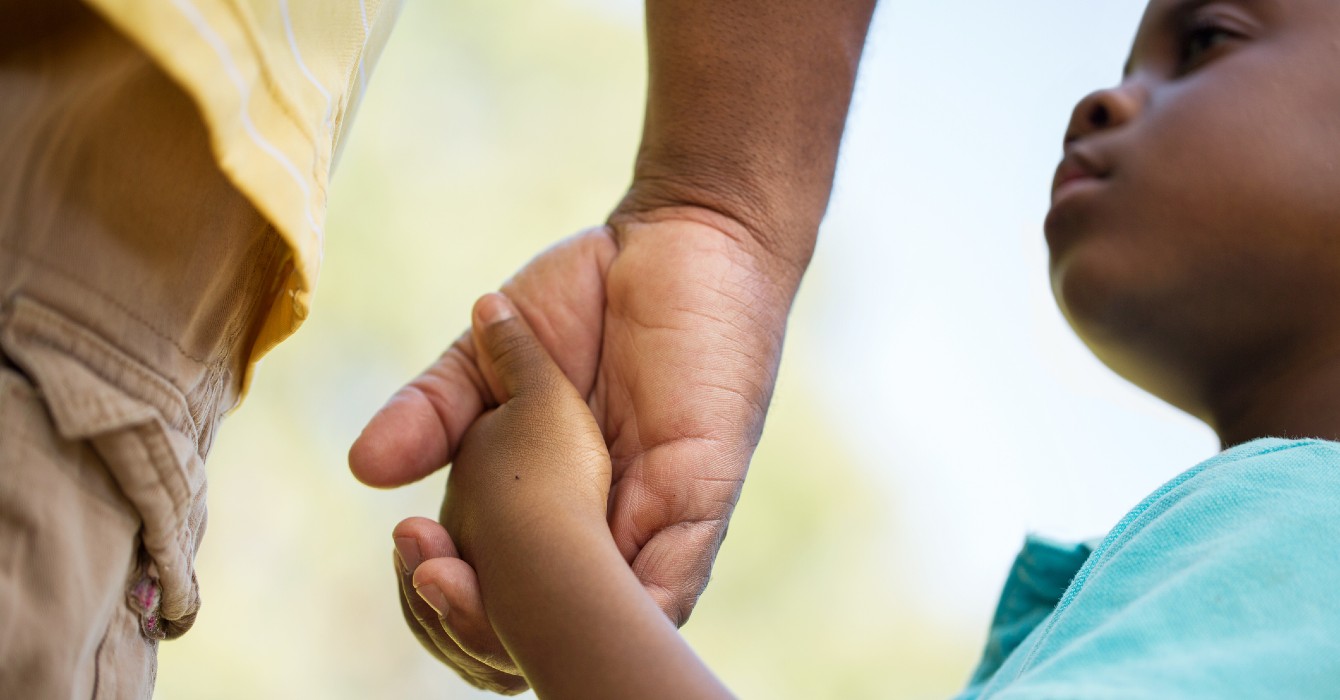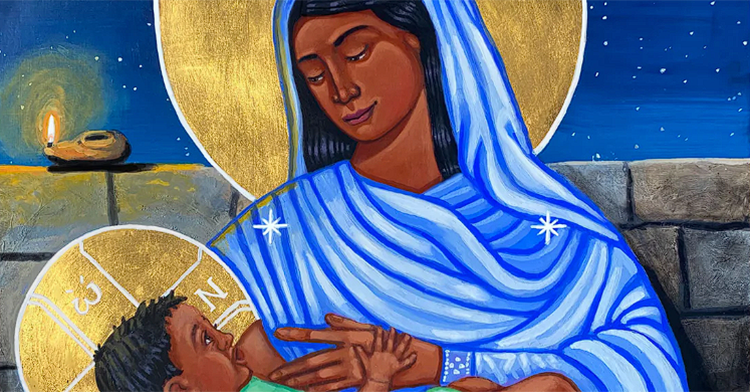In 2002, when Samuel and Jo Bailey Wells had their first child, Laurence, they were clear about who should be the boy’s godfather: their friend Stanley Hauerwas, whom they’d known since the early 1990s.
But because they lived in England, where they both served as Anglican clergy, and Hauerwas lived 4,000 miles away in North Carolina, they had a request: once a year, beginning with Laurence’s baptism, write the boy a letter commending to him a particular virtue fitting for his stage of life.
 So for the next 15 years, from 2002 to 2017, Hauerwas, the Gilbert T. Rowe Professor Emeritus of Divinity and Law at Duke University, did just that, year by year, virtue by virtue, from kindness and truthfulness to generosity and faith. The result is a new book, “The Character of Virtue: Letters to a Godson,” scheduled for release this week by William B. Eerdmans
So for the next 15 years, from 2002 to 2017, Hauerwas, the Gilbert T. Rowe Professor Emeritus of Divinity and Law at Duke University, did just that, year by year, virtue by virtue, from kindness and truthfulness to generosity and faith. The result is a new book, “The Character of Virtue: Letters to a Godson,” scheduled for release this week by William B. Eerdmans
Publishing Co.
From 2005 to 2012, Samuel Wells and Jo Bailey Wells served on the faculty at Duke, he as dean of Duke Chapel and she as director of the Anglican Episcopal House of Studies at Duke Divinity School. After that, they returned to England, where he is now vicar of St Martin-in-the-Fields in London and she is a bishop in the Church of England.
Hauerwas said the book is in some ways a “coming around” to the theological reflection that he has long done on virtues and character.
“I would like to think that my work on the whole is thicker than this book, but I couldn’t have written this book if the work hadn’t been thicker,” he said.
In the introduction, Samuel Wells notes how the book resonates with Hauerwas’ theological career: “In short, he is as a godparent practicing what, as a theologian, he has preached.”
Hauerwas spoke recently with Faith & Leadership about the book, virtues and being a godparent. The following is an edited transcript.
Q: How did the book come about?
When Sam and Jo Wells had their first child, Laurie, they asked me to be one of the godfathers. I was honored, of course, but I said, “I’m just a terrible godfather. I never know what to do.”
So Sam, being Sam, said, “I will give you an assignment. Every year on the anniversary of Laurie’s baptism, you’re to write, commending to him a virtue.” So I did that for 15 years, and the book is the result.
Q: But it didn’t start as a book?
It didn’t start as a book. I just was doing it. I would write probably between seven to 10 pages on each virtue, and it became more than I anticipated it being. Sam and Jo and I, in discussion, said, “Maybe we ought to turn it into a book,” and that’s what we did.
Q: Tell us about the process. In the earliest letters, you’re very aware that, “OK, I’m writing to an infant; I’m writing to a 1-year-old.” How did you go about that?
I tried to think each time what might be age-related. I started with [the virtue of] kindness, because children are cruel, and I thought that on reflection, later in life as he read it -- if he does read it -- it might be useful to him to think about that.
The second one was on truthfulness, because I thought he was learning to talk, and if you learn to talk, you learn to lie. I wanted to guard against that, and so I tried each time to think about a virtue that was correlative with certain kinds of developments in his own life.
Q: Before we talk more about the virtues, tell us about your relationship with Laurence. When this project started, the Wells family was living in England, and of course later, they lived several years here in Durham.
When I first started [writing the letters], we had gotten to know one another when [my wife] Paula and I would go to England. We go every year to Ireland, and sometimes we would go through England. Sam had written a book and his dissertation on my work, so we had gotten to know one another well.
When they asked me to do this, I got to know Laurie on these visits. Then later, of course, Sam and Jo moved here for their positions in the chapel and in the Divinity School, and that’s when we got to know one another very, very well, and I got to watch Laurie.
I can’t say that Laurie and I have a close personal relationship. I’m a 77-year-old human being. Laurie is 15, 16, and it’s silly to think you’re going to come up with a close personal relationship in that way. We’ve had many meals together as families and that kind of thing, and that’s the way the relationship currently stands. What he will make of it as he grows older and I’m dead, I’m sorry I won’t be able to see.
Q: The book is organized year by year, one letter at a time, the first on the occasion of his baptism in October 2002, and then one each year, treating 14 different virtues, all culminating in a letter about character. Tell us more about the first one, kindness.
Each time, I wanted to make the virtues theologically intelligible. I think our God is kind. Christ is the kindness of God.
Most people would use “love,” I think. But kindness is a fundamental way of being that obviously involves love but is an orientation that recognizes that we can be quite brutal with one another and that it’s a gift to be treated kindly. That’s what I was trying to do with that one.
When I say that children are cruel, I don’t mean that they specialize in that, but they “want this now.” Most of the time, they “want this now,” rightly.
Q: What’s the most important virtue?
I’ve never raised that question with myself.
Q: In the book you say, “There’s no virtue more important to me than patience.”
That’s true. I don’t know that I’d want to call it the most significant, but patience is crucial as an eschatological virtue that draws on the Christian commitment to know how to wait in the face of difficulty, and so patience draws on the Christian commitment to living peaceably in a world of violence.
Q: How are the various virtues you address in the book interrelated? How do they fit together?
One of the things that the book enabled me to do was to, one, say something about the individuation of the virtues. Where do you get their names, and what do you mean by their names?
Then, what are the connections between the virtues? Courage is the kind of virtue that needs temperance if it is to be the kind of courage that comes from being a follower of Christ.
Those are the kinds of connections I was able to make. The book, I think, is very accessible. People can read it who have never heard of an ethics of virtue or Aristotle or Aquinas and so on.
But if you have heard of Aristotle and Aquinas and so on, you will see the intellectual decisions that have gone into the book that I think are quite considerable. So I think the book would also be of great interest to people who have more conceptual agendas in the reading of it.
Q: At one level, the book is kind of a guide for would-be godparents, but in another sense, it’s almost a primer on the virtues that anybody might want to read. It’s about formation.
Oh, of course it’s about formation. And it’s a way of thinking about formation that isn’t, “Do this.” It’s about how the very character of our lives, shaped by the fact that we need to eat, is the resource for our becoming habituated with the virtues. There’s much about how the body draws us into a life of virtue.
Q: The final letter in the book was written January 31, 2017, and it’s about character. Tell us about that.
After all these years as someone that began their academic life writing their dissertation entitled “Character and the Problem of Theological Ethics” or something like that, and then having written on the virtues and character for 50 years, I get to this final chapter and I’m still not sure I know what character is.
But Sam gave me the phrase “Character is what you do when no one is looking.” There’s something to that, but not enough.
Character has a sense of the indomitable commitment to live out a life that is true, irrespective of the consequences. That’s the way I think I’ve tried to write about it.
Q: The individual letters, from October 2002 to January 2017, also convey a sense of the passage of time, often referencing then-current events -- the war in Iraq, the recession, President Obama’s election. What do the virtues have to say to that period and to the present moment?
I tried to do that to give Laurie a sense of where we are in history, insofar as we can tell that where we are in history shapes why it is that certain virtues are so necessary, and also to give him a sense of the timefulness that virtues make possible.
That was very intentional, to try to just by a brief paragraph say, “This is where we are; this is what I’m trying to do to negotiate where we are,” and so on.
I also wanted to emphasize the contingent character of life, and that we’re not in control.
Q: And what about you personally? You were 62 when you wrote the first letter, and you’re 77 now. What does that bring to mind for you?
Death.
Q: You said that in the first letter -- “I’m in my 60s now, which means I’ve got to be thinking about death.”
Yeah. I say that death is not a theoretical possibility even for me anymore.
But one thing that it reminds me of in terms of duration is what a wonderful friendship the Wellses and we have. That’s terrific. I really miss them deeply.
Q: To what extent is this book a coming full circle or a recapitulation or summarizing of all your work? Your earliest work was on the virtues and recovering the virtues.
There is a sense of coming around, and what I’ve always done.
I mean, I would like to think that my work on the whole is thicker than this book, but I couldn’t have written this book if the work hadn’t been thicker.
Q: In the first letter to Laurie, for his baptism, you wrote that “as your godfather, all I can promise is that I’ll try very hard not to lie to you.” In the second letter, you wrote about truthfulness. And in the final letter, about character, you say, “We live in a world of politics where truth no longer matters,” and you give Laurie one simple recommendation for how to live in such a world.
“Don’t lie.”
That’s always been such an important commitment of mine. It’s not like we try to lie -- though that will happen from time to time -- but it’s that lies “speak” us. So how to live to develop the skills not to let lies “speak” us is a great challenge. The virtues are part of that.
Q: In that first letter, you also said, “I do not wish you will have an untroubled life.” Explain that.
Well, if he is a Christian and he tells the truth, then he’s going to have a troubled life. It’s a given.













